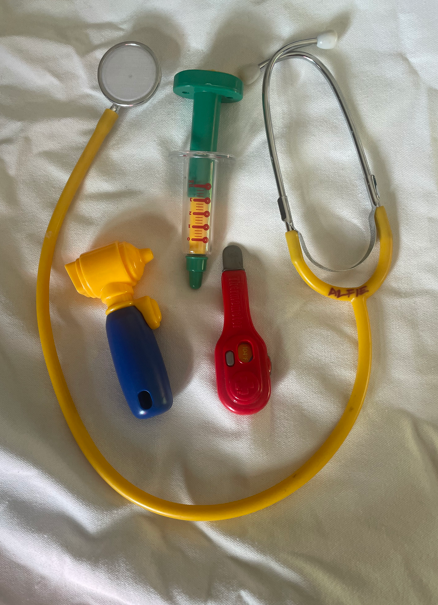Dear Doctor - There Is Something I Want You To Know

Kerry Fender
Down’s Syndrome, my family and me – one mum’s account of family life with an extra chromosome.

Dear Doctor,
There is something I want you to know.
I want you to know that my son’s pain and distress are as real and as valid as anyone else’s and must be taken seriously.
I want you to know that people with learning disabilities DO feel pain, they do feel distress and the full range of emotions, good and bad, that we all feel. But they cannot always put a name to what they are feeling, cannot always articulate it in words.
When a person with a learning disability, like my son, is crying, shouting ‘no!’, and trying to pull his arm away, he is not being naughty or uncooperative or displaying ‘challenging behaviour’, he is communicating to you that you are hurting him or scaring him and he wants you to stop.
I want you to know that your colleagues, the ones who admitted him, treated him the way you should have done.
They were gentle, considerate and patient. They took the time to talk to him, and, most importantly, to listen to him even when what he was saying didn’t seem especially relevant.
They answered his questions, explained, simply, what they needed to do, let him look at the equipment. They offered him local anaesthetic spray, let him spray it on himself to test it, and on them. It took some extra time and a few extra squirts of the freezing spray, but none of it was wasted, because by doing so they were able to get him to calmly cooperate with having a probe inserted into his nose and throat, even ‘sniffing it up’ when they asked him to, and to sit calm and still while they inserted a cannula to give him the intravenous antibiotics he so badly needed. He was very poorly.
Cannulas do come out sometimes, I know this from experience, and it’s no one’s fault.
But when you came to reinsert it, with your juniors in tow, you didn’t even offer the freezing spray, you just attempted to drive a needle into his vein without it, ignoring the fact that he was crying bitterly and shouting ‘no!’. You did this repeatedly until you succeeded.
His dad didn’t dare to challenge you: as a senior doctor you are an authority figure, up on a pedestal, that he has been taught to respect. I, though, have worked with enough doctors to know that you are just as human, just as fallible, as anyone else. If I had been the one there, I would have told you to stop. Not asked. Told. Because that is what my son was telling you and if you wouldn’t listen to him then I would have made sure you listened to me, and in doing so would have given a far better lesson to your junior colleagues than you did, in how to treat a patient with a learning disability.
By the time I came to the hospital to take over from his dad the next day the cannula you inserted so brutally had come out too, and when the staff came to reinsert it so that he could have his next dose of antibiotics he became so distraught that he could not be persuaded to let them attempt to put it back in even with freezing spray or numbing cream. His whole treatment plan had to be changed, causing a considerable headache for your colleagues from ENT.
My son now has needle-phobia, which will cause a considerable headache for both me and him going forward.
So, Doctor, what I want you to know, what I need you to understand, is that your treatment of my son was unacceptable. I want you know that your unacceptable treatment of my son could have consequences that reach far beyond that one evening -- because, not only are you responsible for your patients’ experiences of medical treatment, but you are responsible for teaching, guiding, and setting an example to the next generations of doctors; and what I need them to understand is that patients like my son have a right to the same care and consideration as any other patient, because their pain and their distress are just as real, just as valid and just as important as anyone else’s, their LIVES are just as valid and important as anyone else’s. They are not something to be dismissed or disregarded.


